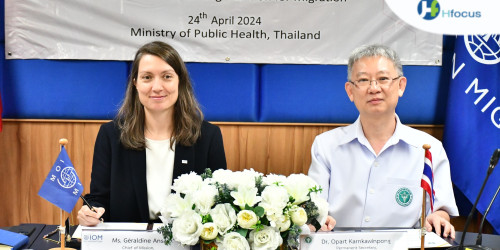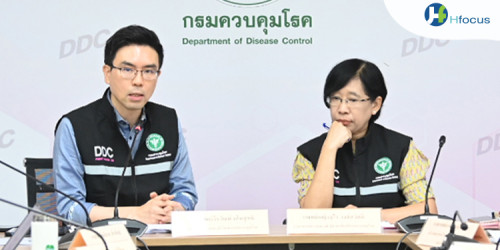Activists fear move will batter local drug supply. The Government Pharmaceutical Organisation (GPO) board has unanimously agreed to dismiss the organisation's head, Witit Artavatkun. Health activists says the move could weaken the country's drug production and distribution system.
Board chairman Pipat Yingseree announced the decision to relieve GPO managing director Dr Witit of his duties yesterday.
He said the dismissal will take effect as soon as the cabinet approves the decision. A search for a new managing director of the state-owned drug producing organisation will begin soon.
Dr Witit said he had not expected the board's decision to be positive. He said the dismissal was unwar-ranted and said he would consult his lawyers on what action to take.
The Department of Special Investigation (DSI) concluded on Thursday that Dr Witit had colluded over prices and com-mitted dereliction of duty in connection with the construction of a 1.4-billion baht vaccine factory.
DSI chief Tarit Pengdith said Dr Witit altered the budget set aside for the factory's design costs from 8 million baht to 20 million baht.
He also split the factory design contract from a single one into four parts which resulted in unfair competition among the bidders, Mr Tarit said.
The DSI also claimed Dr Witit had changed the type of vaccine factory from an inactive one to a live attenuated one without seeking fresh approval from the cabinet. These changes led to the construction being delayed, Mr Tarit said.
Dr Witit maintains he is innocent.The DSI investigation, which began in February, followed a complaint lodged by Public Health Minister Pradit Sintawanarong. The complaint involved three issues alleged irregularities in the procurement of 148 tonnes of paracetamol ingredients; the delay in the construction of the vaccine factory; and the stockpiling of anti-flu ingredients.
The GPO board also conducted its own investigation into the complaint. It announced yesterday that Dr Witit was negligent in his duties.
Former GPO board chairman Wichai Chokwiwat, who was also investigated by the DSI over the alleged irregularities,said the investigators took a very short time to reach their conclusions.
He said Dr Witit gave a two-hour statement to the DSI on May 7. Dr Witit submitted more than 1,000 pages of docu-ments to the agency on Wednesday.
The DSI found the GPO chief committed wrongdoing the following day.
"I am afraid this action against Dr Witit will lead to disaster for the country's pharmaceutical sector. His dismissal will weaken the GPO and allow those with vested interests to take advantage of the situation," Dr Wichai said.
Dr Witit, who became GPO chief in 2007, has received praise for improving the country's public health services and drug distribution system.
The 40-baht universal healthcare project he piloted while director of Baan Paew Hospital in Samut Sakhon province from 1987 to 2007 was the model for the national 30-baht healthcare scheme.
As GPO managing director, Dr Witit also won praise for increasing the organisation's income from 5 billion to 12 billion baht over the past five years.
He was also a key figure in launching compulsory licensing which allows developing countries like Thailand to use cheaper, generic drugs instead of relying on more expensive brand-name versions from overseas. As a result, the number of HIV patients who could access secondline alternative antiretroviral drugs from state-owned hospitals increased from 69 to 10,000.
"The GPO chief is a high-calibre person. We are afraid his dismissal could result in problems with drug distribution in state-owned hospitals," Aids Access Foundation director Nimit Tian-udom said. If the GPO becomes weak, patients will be forced to rely on more expensive overseas medicine suppliers, she added.
Health activists claimed the probe into Dr Witit and the GPO was an attempt to discredit him and the organisation.
Public health regulations name the GPO as the preferred supplier of drugs to state-owned hospitals nationwide. A lack of confidence in the GPO could open up lucrative opportunities for drug companies, said Niyada KiatyingAngsulee from Chulalongkorn University's Drug System Monitoring and Development Programme.
Source: Bangkok Post 18 May 2013
- 3 views








